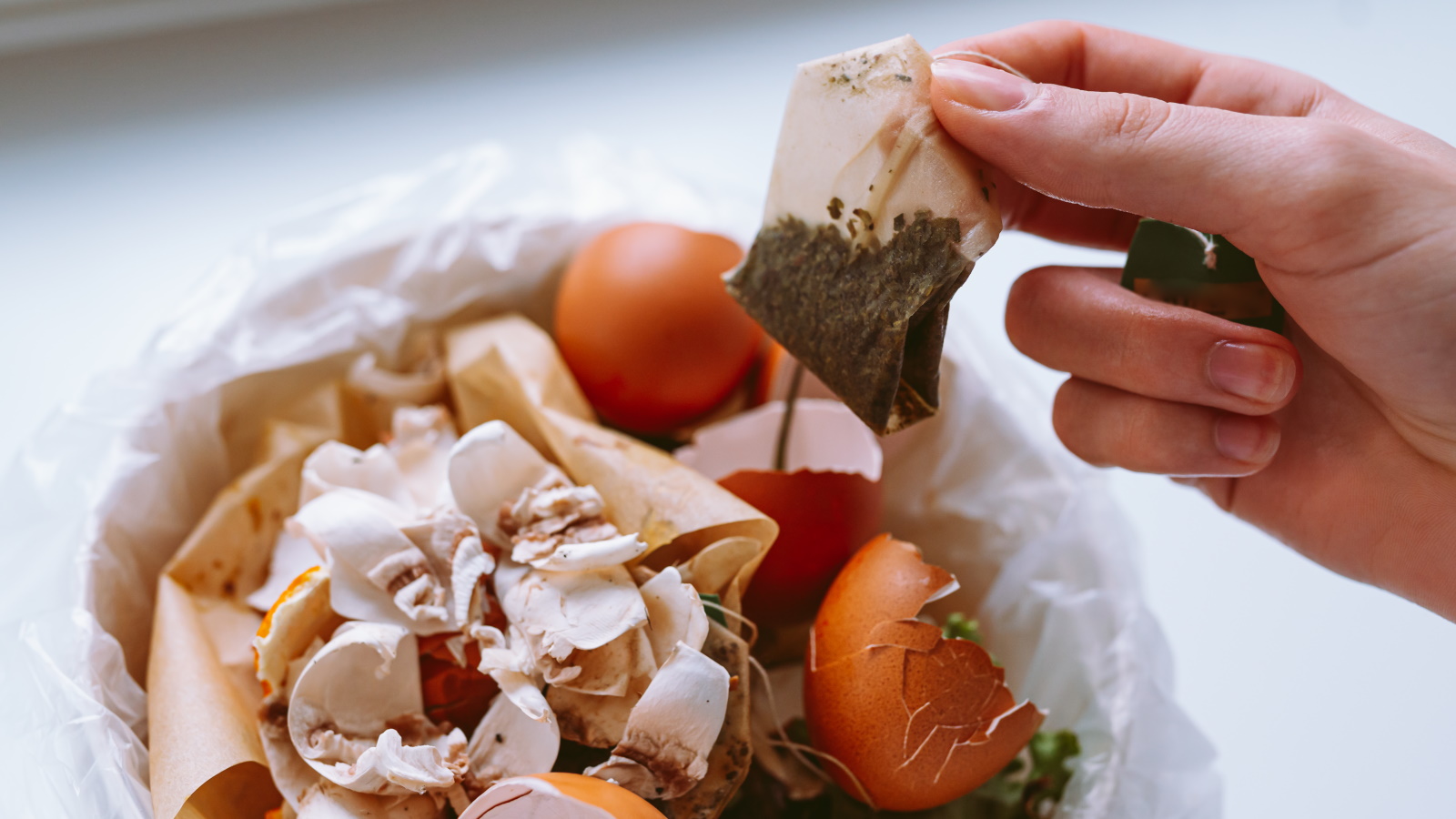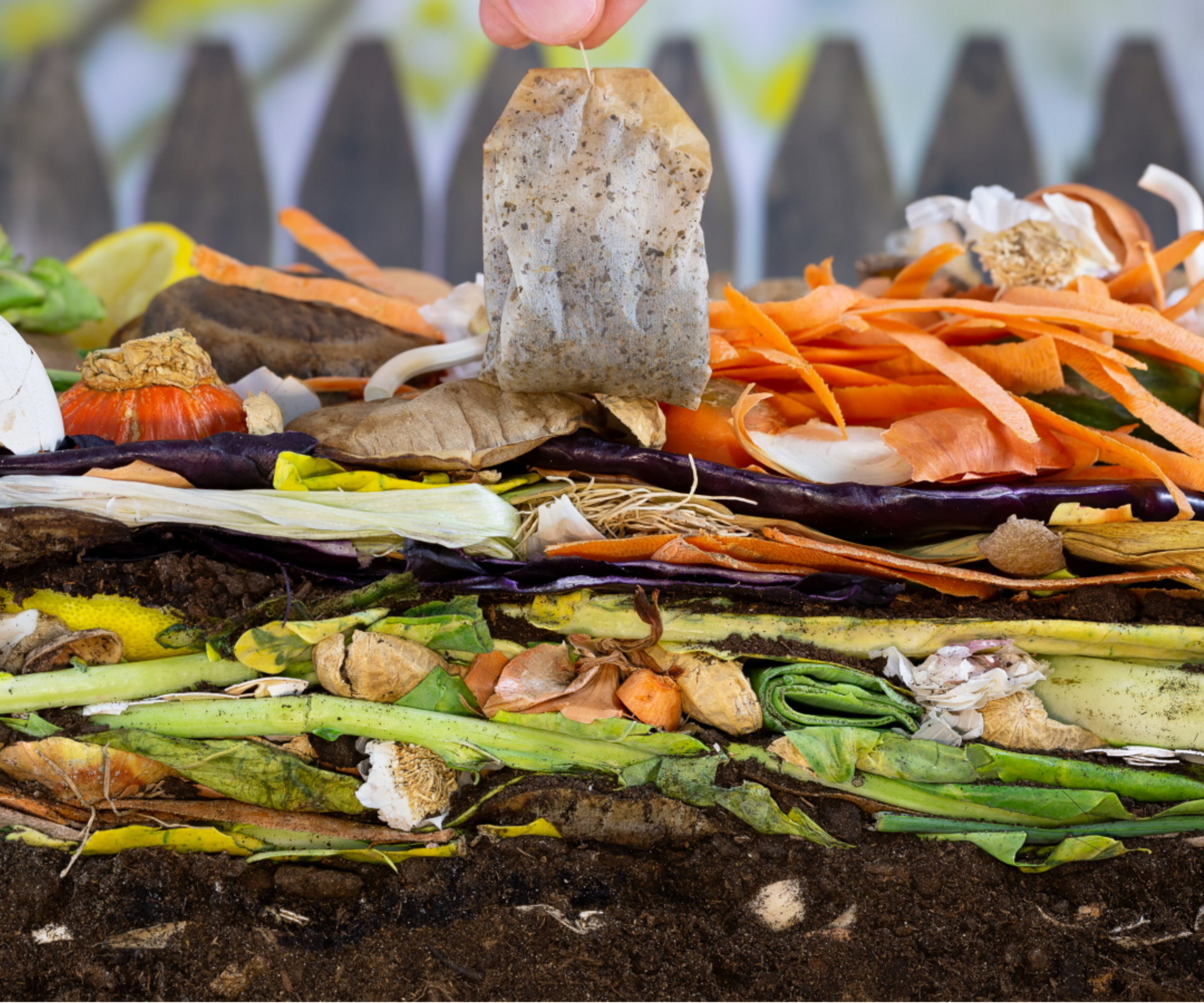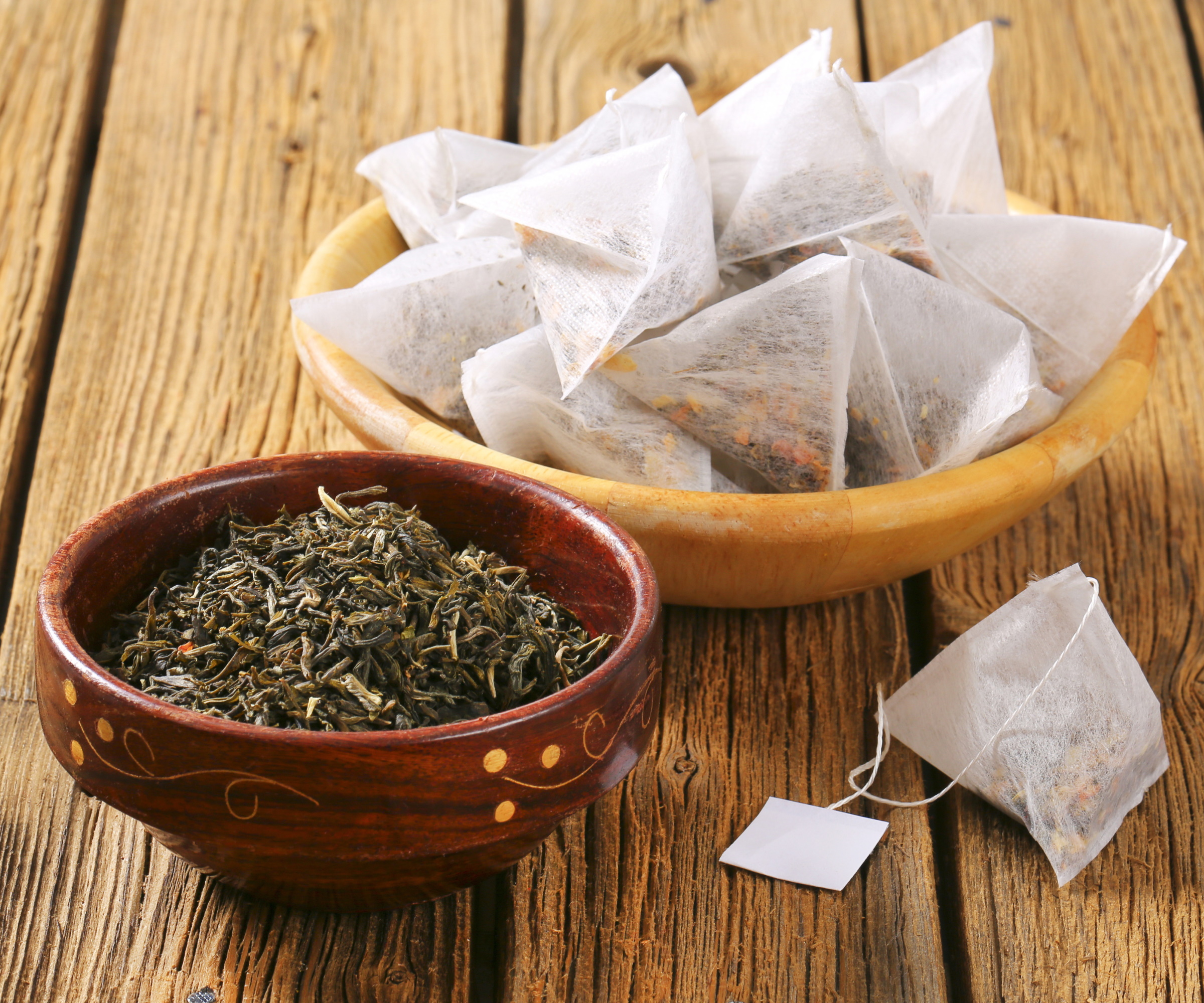
When you first start composting, it can be tempting to throw anything and everything into your heap to make it bigger and hopefully speed up the rate of decomposition. However, there are some items that you should think twice about - including tea bags.
While we know that coffee grounds are good for plants and you can put them in your compost bin without concern, tea bags are a bit different. Of course, the biodegradable tea leaves inside a tea bag are fine to go in compost, but it's the packaging of tea bags that are the issue.
Learning to make compost is all about trial and error, but you should avoid putting any synthetic materials in your heap that won't break down. So, if you're looking for the answer to 'are tea bags compostable?' find out below why you should be cautious about this potential compost ingredient.
Are tea bags compostable?

The synthetics of tea bags poses a challenge, which means they are not always compostable.
'Traditional tea bags may contain synthetic fibers like polypropylene for sealing, which are not compostable,' explains Lauren Click, founder of Let's Go Compost.
The problem with putting in synthetic materials is they won't break down and, while adding more material usually speeds up composting, this would only slow it down.
There are a wide range of unusual compost ingredients you can include in your compost bin, many of which are kitchen scraps. So, it's no wonder we might assume tea bags can also be thrown in there. However, as Lauren explains: 'Bags containing plastic fibers (eg, polypropylene, PET) or bleached paper often do not fully decompose and should not be composted. Mesh or pyramid-style bags are more likely to contain plastic and require close inspection.'
Another issue is that these materials may have been treated with chemicals and putting them in your compost bin is a composting mistake that could cost the health of your plants. This is because it could contaminate your compost heap and, in turn, your plants.
What kind of tea bags are compostable?

Of course, many brands prioritize green efforts, meaning there are a wide range of compostable, plastic-free tea bags on the market.
'Look for 'compostable' or 'biodegradable' labels to ensure tea bags are plastic-free,' suggests Lauren. It's best to always enquire with manufacturers before putting your tea bags in compost.
'If uncertain about the material, discard the bag and compost only the tea leaves,' Lauren adds.
Something to also be aware of is how to successfully compost biodegradable tea bags. 'Some compostable materials decompose only in industrial composting facilities with higher temperatures, which may not be achievable at home,' Lauren explains. In this case, you might find it best to use hot composting techniques and monitor how well the materials are breaking down.
While being able to repurpose tea bag waste in your compost bin is an eco-friendly garden idea, Lauren notes there are other options that might be even better: 'Stainless steel reusable tea balls can be a more sustainable option than compostable tea bags,' she says. Find reusable tea balls at Amazon.
Shop compostable tea bags
This earthy, organic tea is packaged in biodegradable tea bags that are free of wrappers, strings, adhesives and bleach.
Numi's tea bags are organic and the packaging of each tea bag is plant-based, making it biodegradable for a compost bin.
Make your own tea with these disposable paper tea bags. They have no glue and are compostable, leaving no waste behind.
FAQs
Are tea leaves good for plants?
Tea leaves are a good source of nutrients for plants, making them a popular composting ingredient. 'The tea leaves inside tea bags are organic matter rich in nitrogen, ideal for composting, and can be added directly to compost,' explains Lauren Click, founder of Let's Go Compost. Nitrogen is good for plants because it's an essential plant nutrient that supports vegetative growth. You also need sufficient nitrogen sources to stop compost smelling bad and help it decompose at a faster rate.
Now you know the answer to 'are tea bags compostable?' there are other items you might also be wondering whether you can put in your compost heap. For example, it might surprise you to know you can compost weeds.
Nevertheless, always do some research around what you want to put in your compost bin to avoid adding materials that cause more harm than good - this includes knowing what not to put in a wormery.







